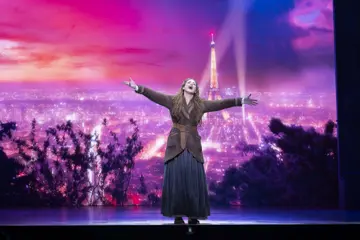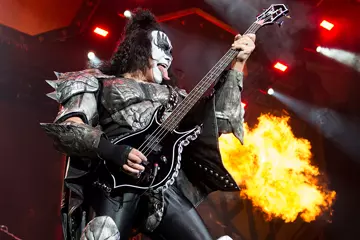Treading New Paths: An Examination Of Indigenous Writing gave crucial insight into the state of Indigenous affairs in relation to the performing arts. The attendees were fortunate enough to be welcomed to country by Gadigal Elder, Uncle Charles (Chicka) Madden. He set the tone of the discussion as one underlined by warmth and welcome, specifically welcoming "all my Indigenous brothers and sisters" before extending the welcome to his "non-Indigenous brothers and sisters". "Welcome, welcome, welcome" were the words that resonated.
Eamon Flack, artistic director of Belvoir, introduced the panel. Rachael Maza, actress and director, Luke Carroll, actor, Fred Copperwaite, artistic director of Moogahlin Performing Arts Inc, Nakkiah Lui, playwright and winner of the Balnaves Foundation Indigenous Playwright's Award (2012), and Stan Grant, journalist. Eamon briefly mentioned Belvoir's 30-year history and identified that each year, an Indigenous story had been told. He said this was "the great and difficult undertaking of creating Indigenous plays", and expressed hope that with more resources there would be a greater quantity and variety of Indigenous plays to grace the stage.
Stan Grant facilitated and saw the panel discuss a range of issues.
"I look in the mirror every morning, and I'm a blackfella."
They covered the tension between written and oral forms of storytelling, the divide between Western and Eastern traditions. Maza mentioned the supposed objectivity of the written word and its perceived superiority over the oral word. She laughed at this perception and said "Look at the problems that the written word has posed. Look at the Bible!" and "Whoever's written history has a very big agenda."
The simmering question that underscored most of the discussion fittingly concerned Indigenous relationships to theatre. Grant asked, "How are we defined in the Australian imagination? [Traditionally, we've been represented as] brutish… savage… Have we managed to break free from that place?" The answer oscillated between yes and no but sat within an optimistic middle-ground: there is an "awkward" stage of figuring out how to share the stories, of how to best represent the Indigenous experience. The reality of identity shone through at every moment. Carroll said that he would love to engage with the universal themes of a Chekhov or a Shakespeare but also that, "I look in the mirror every morning, and I'm a blackfella."
Don't miss a beat with our FREE daily newsletter
The panel's speakers were humble and respectful. Their navigation of tensions between white and black theatre in Australia and in a global context was poignant and well-managed. At no point did they alienate any colour; this was a welcoming space. The unwelcoming space of the industry, though, was expounded multiple times. Lui borrowed from marginalised people's rhetoric and referred to this hostility as the "global diaspora". Carroll's casting as an "Indigenous actor" as opposed to an "actor" tells of the limited space there is for Indigenous actors to inhabit traditional theatre spaces. Grant pointed out that the Indigenous "are still the only people who have to tick a box when we join a football club or a school", and the commercial television unspoken rule, "blacks don't rate," and thus won't be shown on primetime (or really any other time) television.
The tone was jovial but serious. And it should be. Indigenous representation in the arts in Australia is shockingly low. Panels like this, spaces like Belvoir, and increased flow of resources into organisations that will foster new generations of Aboriginal storytellers are an essential part of our growing identity. This identity, an "Australian" identity, needs to include the voices of those to whom the land belongs. Sovereignty was never ceded, and the theatre is a space of boundless potential to help us navigate what that means.















